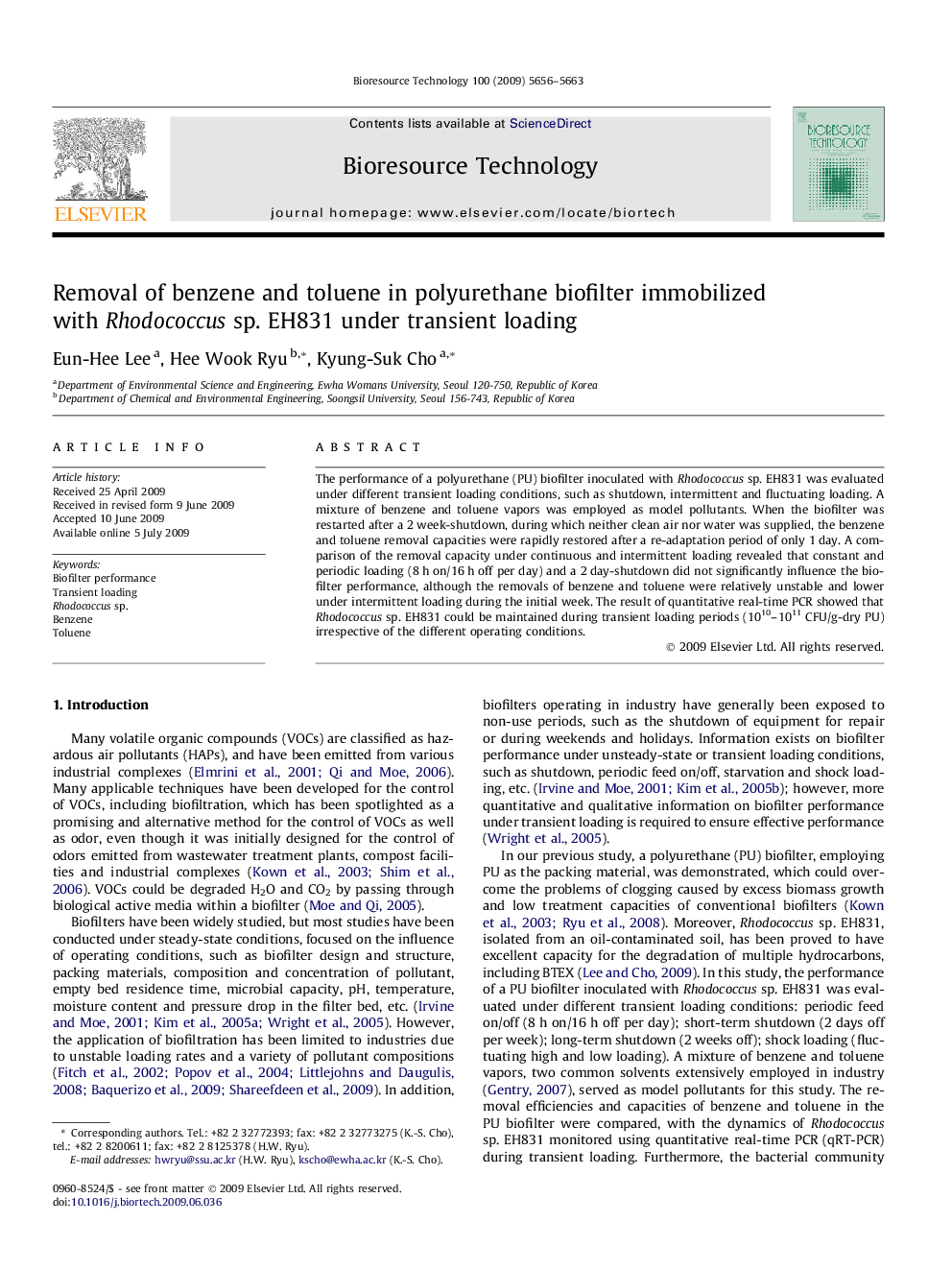| Article ID | Journal | Published Year | Pages | File Type |
|---|---|---|---|---|
| 683333 | Bioresource Technology | 2017 | 8 Pages |
Abstract
The performance of a polyurethane (PU) biofilter inoculated with Rhodococcus sp. EH831 was evaluated under different transient loading conditions, such as shutdown, intermittent and fluctuating loading. A mixture of benzene and toluene vapors was employed as model pollutants. When the biofilter was restarted after a 2Â week-shutdown, during which neither clean air nor water was supplied, the benzene and toluene removal capacities were rapidly restored after a re-adaptation period of only 1Â day. A comparison of the removal capacity under continuous and intermittent loading revealed that constant and periodic loading (8Â h on/16Â h off per day) and a 2Â day-shutdown did not significantly influence the biofilter performance, although the removals of benzene and toluene were relatively unstable and lower under intermittent loading during the initial week. The result of quantitative real-time PCR showed that Rhodococcus sp. EH831 could be maintained during transient loading periods (1010-1011 CFU/g-dry PU) irrespective of the different operating conditions.
Related Topics
Physical Sciences and Engineering
Chemical Engineering
Process Chemistry and Technology
Authors
Eun-Hee Lee, Hee Wook Ryu, Kyung-Suk Cho,
